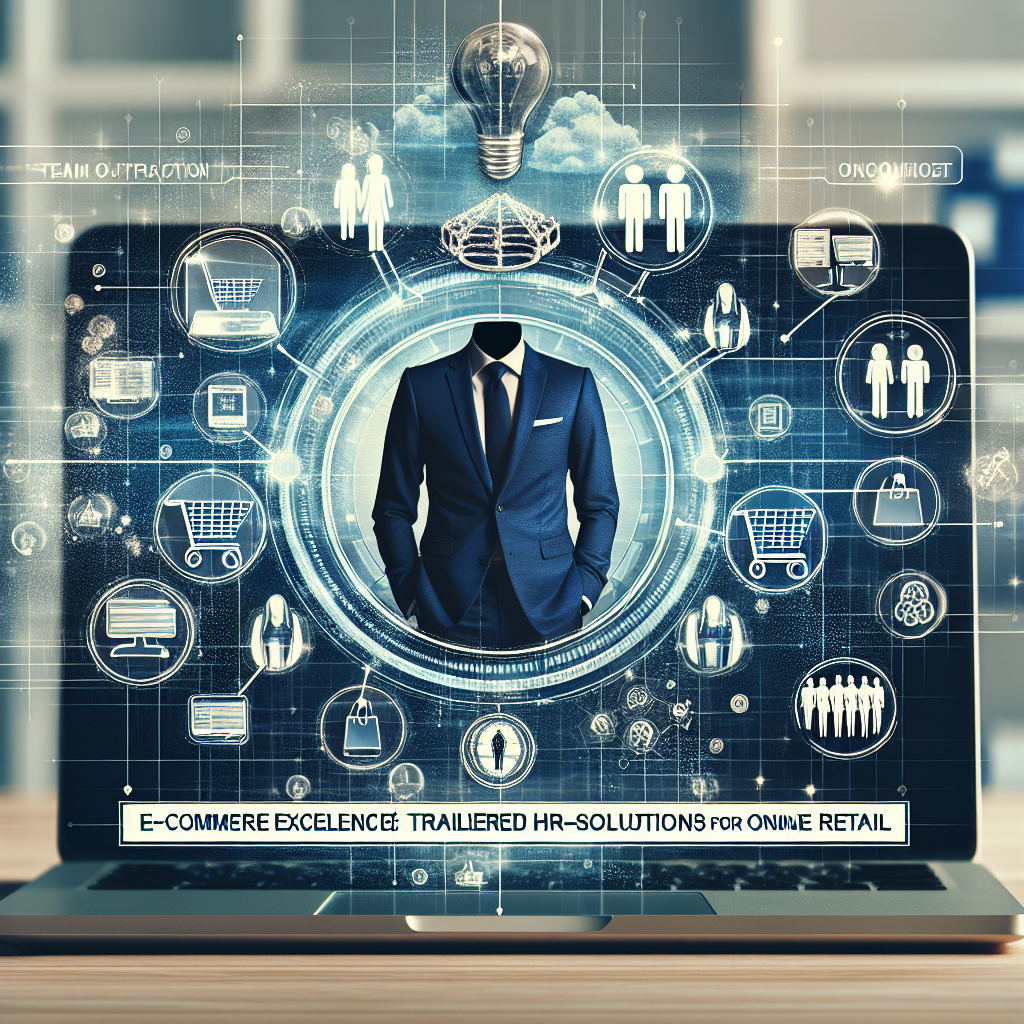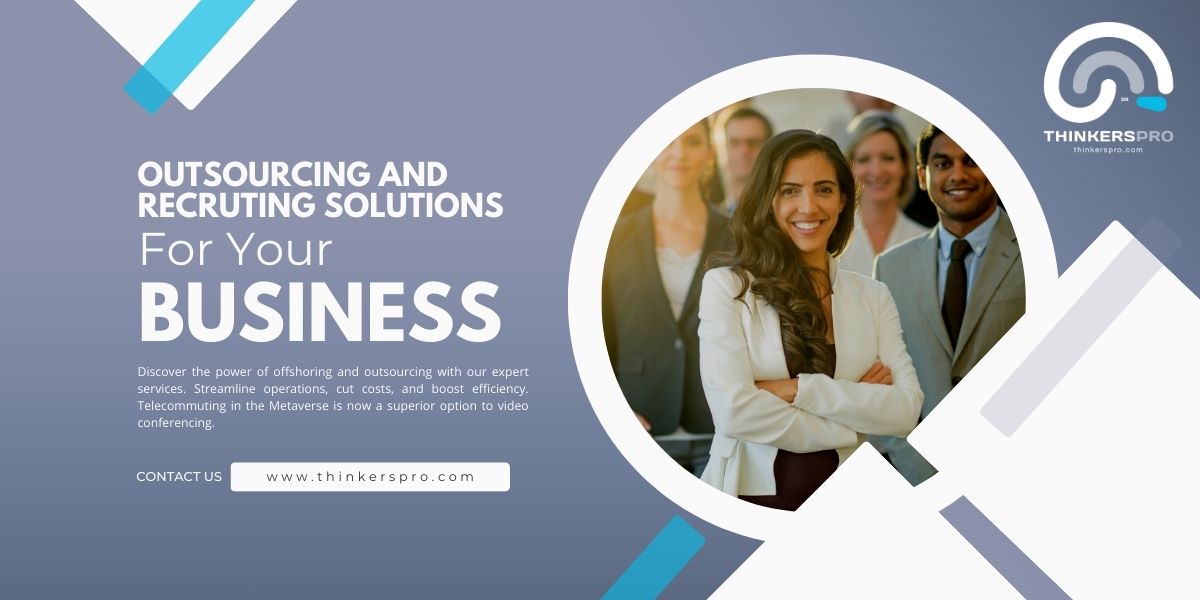Remote Work Management and Productivity
Remote work has become a cornerstone of the e-commerce industry. HR faces the challenge of fostering a productive remote work environment while ensuring work-life balance for employees. This includes implementing efficient communication tools, virtual team-building activities, and performance management systems that accommodate the nuances of a digital workspace.
Enhancing Employee Engagement Virtually
Engaging a remote workforce can be daunting as traditional face-to-face motivators are not viable. HR must innovate to create a sense of community and inclusion among remote workers. This involves regular virtual meetups, recognition programs, and interpersonal connectivity through company-sponsored online social groups.
Creating a Culture of Continuous Learning
The rapid evolution of e-commerce means that employees must continually learn and adapt to maintain the industry’s pace. HR professionals need to cultivate a learning culture where ongoing training is both accessible and encouraged. This can be facilitated through easy-to-use learning management systems filled with up-to-date content relevant to the e-commerce world.
Compliance with Diverse Employment Laws
As e-commerce businesses often operate across multiple jurisdictions, HR must ensure compliance with various labor laws and regulations. This complex legal landscape requires a well-versed HR team fluent in the specifics of employment standards for each region, including worker rights, tax implications, and other statutory requirements. By navigating these legal intricacies effectively, businesses can avoid costly penalties and maintain a reputable standing in the global market.
Building a Robust Online Retail Workforce with HR Innovations
The Role of HR Software in Employee Scheduling
Efficient scheduling is at the heart of a well-oiled online retail operation. Modern HR software can accommodate the various demands of shifts, managing part-time and full-time staff alongside seasonal surges with minimal manual intervention. This not only ensures optimal staffing levels but also enhances employee satisfaction by considering their availability and preferences.
Fostering a Culture of Continuous Learning
In the fast-paced world of online retail, fostering a culture of continuous learning and improvement is vital. HR innovations in this sector involve creating comprehensive e-learning platforms and ongoing training programs that are accessible remotely. This approach ensures that staff members are kept up-to-date with the latest industry trends, product knowledge, and customer service techniques, which are critical for maintaining a competitive edge. Microlearning modules and gamification strategies are among the effective methods used to engage employees in ongoing professional development.
Incorporating Feedback Mechanisms for Growth
- Regular Employee Surveys
- 360-degree Feedback
- Performance Analytics dashboards
Active feedback mechanisms are integral to continuous learning efforts. They enable HR to gauge employee satisfaction and identify skills gaps, channelling this information into tailored training and development programs.
Enhancing Employee Well-being and Retention
Employee well-being directly impacts productivity and retention rates, which are critical factors for the success of any online retail business. HR innovations like flexible working arrangements, welfare programs, and competitive compensations contribute significantly to a positive work environment. Recognizing and rewarding performance excellence helps cultivate a motivated workforce that is invested in the company’s vision and growth.
Building a Supportive Work Community
A supportive work community is a cornerstone of employee well-being. HR’s role in fostering such an environment involves implementing team-building activities and communication platforms that promote collaboration and camaraderie among remote workers. This sense of community not only nurtures a positive workplace but also encourages innovative ideas and solutions to emerge from within the workforce.
Optimizing Employee Performance in E-Commerce Through Strategic HR Management
Implementing Targeted Talent Acquisition
Talent acquisition is not just about filling positions, but about finding individuals who will thrive in the fast-paced e-commerce environment. Strategic HR management in e-commerce involves a keen focus on sourcing candidates with digital literacy, problem-solving skills, and adaptability. Utilizing data analytics can assist in identifying skill gaps within the organization and guiding the recruitment process toward candidates who can fill these critical roles.
Enhancing Training and Development
Continuous learning is vital in a sector that evolves as briskly as e-commerce. Training and development programs, curated specifically for e-commerce, are necessary for employees to stay current with new technologies and market trends. HR departments can optimize employee performance by offering regular workshops on the latest e-commerce tools, digital marketing techniques, and customer service strategies.
Cultivating a High-Performance Culture in E-Commerce
A high-performance culture is characterized by an engaged workforce where employees are motivated to exceed their targets. To cultivate such a culture within an e-commerce setting, HR management must foster an environment that values open communication, innovation, and recognition of achievements. Empowering employees through a participative management style can lead to higher job satisfaction and, subsequently, better customer services.
Encouraging Open Communication and Innovation
In e-commerce, where business models and customer expectations are constantly changing, open communication channels enable employees to contribute ideas and receive feedback. HR can encourage this by implementing internal social platforms and regular team meetings. Encouraging innovation at all levels of the company ensures that the business stays ahead of the competition in both employee satisfaction and technological advancements.
Recognizing and Rewarding Achievements
Reward systems play a crucial role in maintaining employee motivation and commitment. Strategic HR management can develop a range of recognition programs, such as performance bonuses, employee of the month awards, and career advancement opportunities. These initiatives help employees see the connection between their efforts and business success, driving improved performance across the e-commerce platform.
Utilizing Technology to Enhance HR Efficiency
The use of HR technology, such as Human Resource Information Systems (HRIS) and Employee Performance Management (EPM) software, can streamline HR processes and provide data-driven insights into workforce management. These tools enable e-commerce companies to handle complex HR tasks more efficiently, including payroll processing, benefit administration, and performance analysis. In turn, this data can be used to further refine HR strategies and improve employee performance throughout the company.
Maximizing the Use of HR Analytics
HR analytics is a powerful tool for e-commerce businesses, providing them with the capability to predict and improve employee performance. Analyzing data trends in employee behaviour, turnover rates, and hiring practices allows HR managers to make informed decisions on how to best support their e-commerce workforce.
Leveraging HR Analytics for E-commerce Business Growth
The e-commerce industry continues to grow at a rampant pace, and with this growth, the need for efficient and innovative human resource management becomes increasingly evident. To stay competitive, businesses are turning to HR analytics as a powerful tool to fuel business growth. HR analytics allow for the examination and analysis of HR data to make evidence-based decisions, leading to more strategic hiring, improved employee retention, and enhanced overall productivity.
Strategic Hiring through Data-Driven Insights
In the realm of e-commerce, strategic hiring is critical. HR analytics empower businesses to identify the specific skills and attributes required for various roles within the company. By analyzing data from past hiring successes and employee performance, e-commerce businesses can create more accurate job descriptions, streamline the recruitment process, and increase the quality of new hires. With the right analytics, HR teams can predict candidate success and ensure that new team members are more likely to thrive in their roles.
[aib_post_related url=’/strategic-advantages-navigating-the-benefits-of-hr-outsourcing/’ title=’Strategic Advantages: Navigating the Benefits of HR Outsourcing’ relatedtext=’Quizás también te interese:’]
Boosting Employee Engagement and Retention
Employee engagement is a cornerstone of a thriving e-commerce business. HR analytics help in understanding patterns related to employee satisfaction and turnover. By using these insights, businesses can implement targeted strategies to enhance engagement, such as personalized training programs, career advancement opportunities, and rewards for exceptional performance. Analytics can also identify the risk factors for high turnover and prompt early interventions, helping businesses retain top talent and reduce the costs associated with employee churn.
Enhancing Operational Efficiency
Operational efficiency is critical for e-commerce businesses where speed and customer satisfaction are key. HR analytics enable companies to assess the effectiveness of their workforce, from sales teams to fulfillment centers. By monitoring metrics such as sales productivity, order processing times, and customer service responses, businesses can pinpoint areas for improvement and take swift action. Continuous analysis and application of HR analytics can drive systematic enhancements across all operations, ensuring that growth targets are met without compromising on service quality.
Informed Decision Making for Business Scalability
As e-commerce businesses scale, they face new and complex HR challenges. HR analytics serve as a decision-making compass, guiding companies through the intricacies of scaling their workforce. This includes understanding workforce dynamics, forecasting labor demands, and planning for workforce diversity. An analytics-driven approach to HR ensures that as the e-commerce operation grows, its human resources evolve in a sustainable and supportive way.
Enhancing Employee Engagement in Your Online Retail Venture
In the fast-evolving e-commerce landscape, a dedicated and motivated workforce is the engine that drives success. Employee engagement isn’t just about happiness or satisfaction; it’s the measure of how invested your employees are in the company’s goals and their enthusiasm to contribute to its success. High levels of engagement lead to improved productivity, lower turnover rates, and a better customer experience, all critical factors for thriving in online retail.
Effective Communication: The Key to Connectivity
Effective communication is at the heart of enhancing employee engagement. Transparent communication fosters trust and a sense of community, vital for remote or dispersed teams common in online retail. Regular team meetings, one-on-one check-ins, and ensuring all team members are well-informed about company developments go a long way in keeping the team connected and engaged.
- Weekly virtual team meetings to align on goals and achievements
- Monthly one-on-one sessions to address individual concerns and career progression
- Utilizing project management tools for constant updates and collaboration
Recognition and Rewards: Fostering a Motivated Workforce
[aib_post_related url=’/trends-in-finance-hiring-insights-for-the-financial-sector/’ title=’Trends in Finance Hiring: Insights for the Financial Sector’ relatedtext=’Quizás también te interese:’]
Recognizing and rewarding your employees not only bolsters morale but also encourages a performance-oriented culture. Acknowledgment can take many forms, from public praise during meetings to more structured reward programs. Personalizing rewards to suit individual team members can amplify these effects, as it shows a deeper appreciation for their unique contributions.
Reward Ideas for Exceptional Performance:
- Bonus or gift cards for consistent top performers
- Additional paid time off or flexible work hours
- Professional development opportunities or courses
Cultivating a Positive Work Culture
[aib_post_related url=’/onboarding-software-a-comparative-analysis/’ title=’Onboarding Software: A Comparative Analysis’ relatedtext=’Quizás también te interese:’]
A positive work culture underpins employee engagement. Promoting work-life balance, providing support for mental health, and creating an inclusive environment are pivotal. Encourage breaks, social interactions among team members, and have resources available for mental health support. Inclusivity can be achieved through ongoing education, open forums for discussion, and celebrating diverse cultures and backgrounds.
- Regular team-building activities and virtual hangouts
- Access to mental health resources and support
- Diversity and inclusion training sessions


